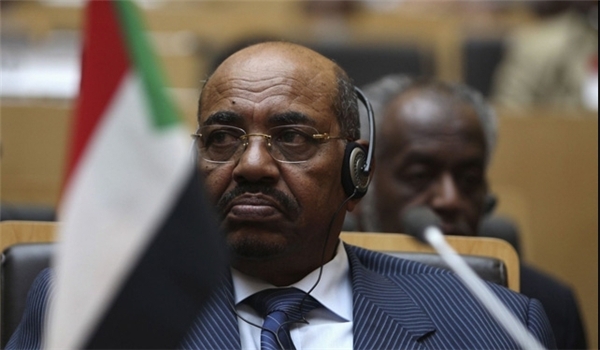Saudileaks: Sudanese President Angry over Cool Reception by Saudi King in 2012

The Sudanese president Omer Hassan al-Bashir was upset by what appeared to be a cool reception by late king Abdullah during a 2012 visit to Riyadh prompting one of his aides to write to Riyadh expressing this displeasure, according to a cable released by the Yemen Cyber Army.
The Saudi Foreign Ministry was hacked by the Yemen Cyber Army in May and a copy of its information was sent to FNA and another one to the whistleblower website WikiLeaks.
In one of the documents, a letter addressed to then Saudi foreign minister Saud al-Faisal from Bashir’s adviser Mustafa Ismail dated April 10 2012 showed Khartoum struggling since late 2011 to establish contacts between Riyadh and Khartoum.
“I addressed your highness on December 8, 2011 to set a time to meet your highness in accordance with directions of president Omer Hassan al-Bashir and after the wait went on for so long (to meet Saudi FM) despite repeated phone calls to your chief of staff brother Sultan, brother president (Bashir) decided to visit the Kingdom himself to meet King Abdullah Bin Abdel Aziz may god preserve him,” Ismail wrote.
“But to be honest your highness, I wish the visit did not take place as the president came back frustrated with a different impression than the one he got after every visit (in the past) he made to the kingdom (he was really distressed)”.
Ismail then asks for a meeting with al-Faisal to discuss this matter further.
The letter by Bashir’s adviser offers a rare glimpse into the strained relationship that existed between the two countries during the reign of late King Abdullah which was attributed to Khartoum’s close ties with Tehran.
The Sudanese leader has been unable to meet directly with King Abdullah since this 2012 trip despite repeated visits for pilgrimage or regional events.
Bashir has reportedly pushed for financial help from the oil-rich country at that meeting to plug the growing budget hole caused by secession of oil-rich south the year before.
To make matters worse, Saudi Arabia closed its airspace in August 2013 to the plane carrying Bashir on his way to Iran where he was scheduled to attend the inauguration ceremony of then president-elect Hassan Rouhani thus forcing him and his delegation to return home.
But Sudan joined the Saudi-led military strikes against Yemen after meeting with King Salman in Riyadh last March to appease Saudi Arabia.
Late in May, Yemen Cyber Army released a portion of the information and documents that it had gained in its recent cyber attack on Saudi Arabia’s Foreign, Interior and Defense Ministries.
The Yemen Cyber Army announced that it has hacked the website, servers and archives of Saudi Arabia’s Foreign, Interior and Defense ministries and would release thousands of these top secret documents.
The group claimed that it “has gained access to the Saudi Ministry of Foreign Affairs (MOFA) network and have full control over more than 3000 computers and servers, and thousands of users. We also have access to the emails, personal and secret information of hundreds of thousands of their staff and diplomats in different missions around the world”.
The hackers’ statement, which said the cyber army has also attacked the Saudi Interior and Defense ministries and vowed to release their details later, was carried by several globally known hackers websites.
Following the hack in May, the Yemen Cyber Army sent a copy of its information to FNA and another one to the whistleblower website WikiLeaks.
“WikiLeaks released 60,000 documents on Friday and vowed to release the rest in coming weeks, but we plan to release the documents in separate news items since many of them contain the names of foreign nationals who have demanded visit to Saudi Arabia, for example for Hajj pilgrimage, and their names have been mentioned among the Saudi agents. Thus releasing the list of names and documents might hurt innocent individuals who have done nothing, but applied for visa at a Saudi embassy for doing Hajj pilgrimage,” FNA English Editor-in-Chief Seyed Mostafa Khoshcheshm said.
“The number of the documents is way beyond the 500,000 that has been announced by WikiLeaks, but they need to be checked first to make sure that they do not contain misleading information and are not harmful to innocent people,” he added.







